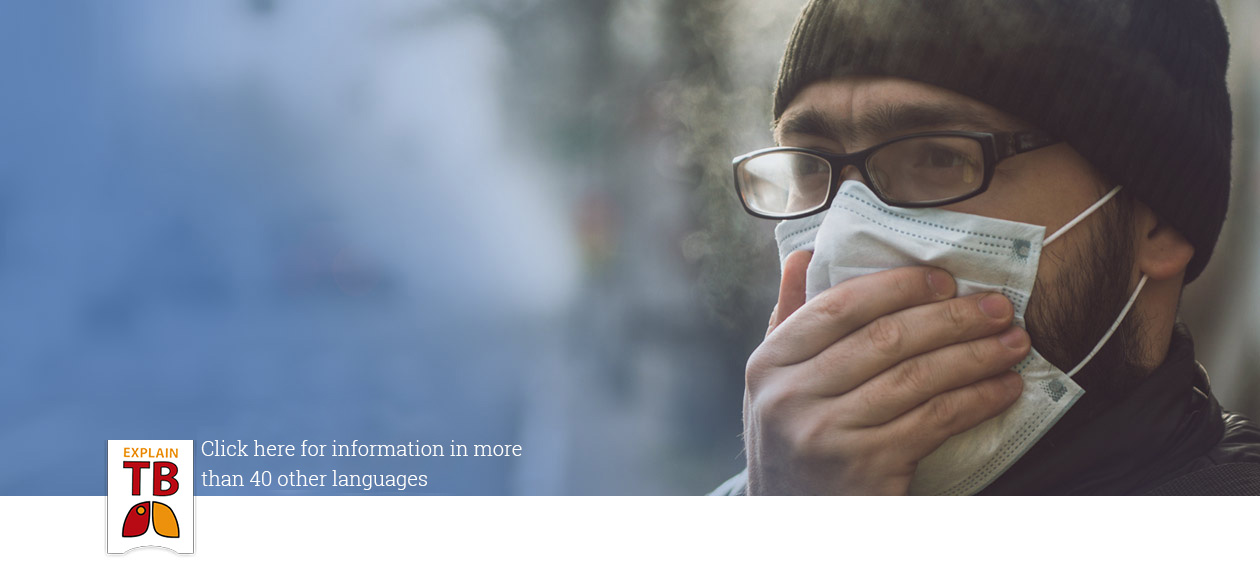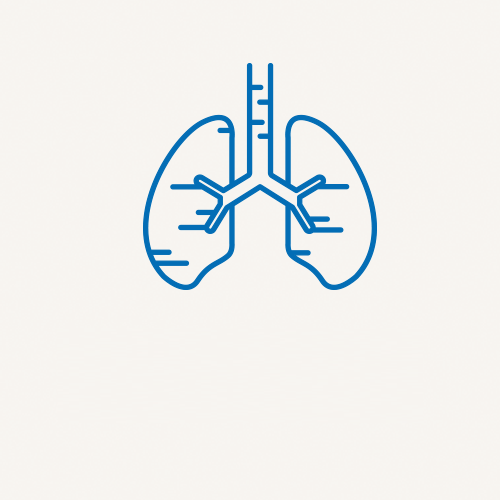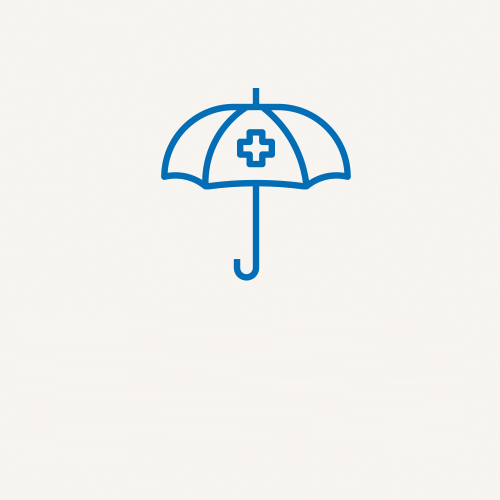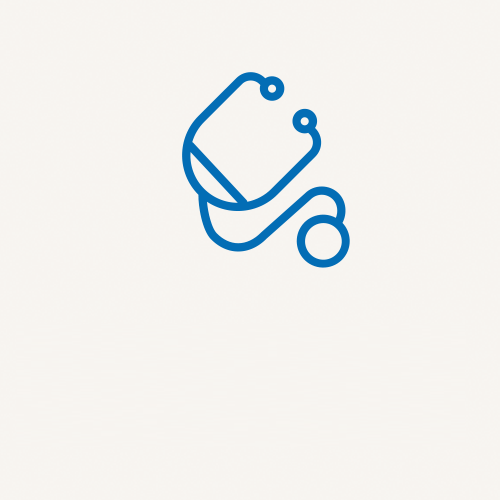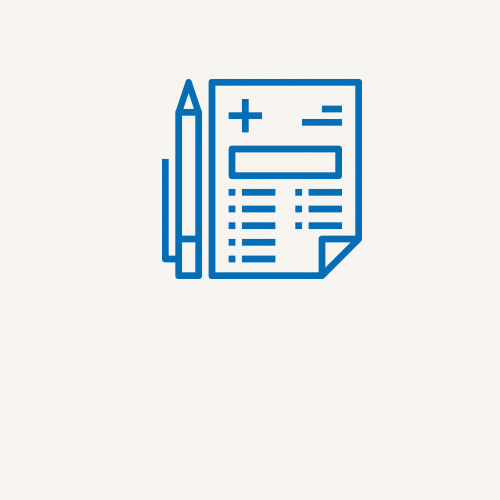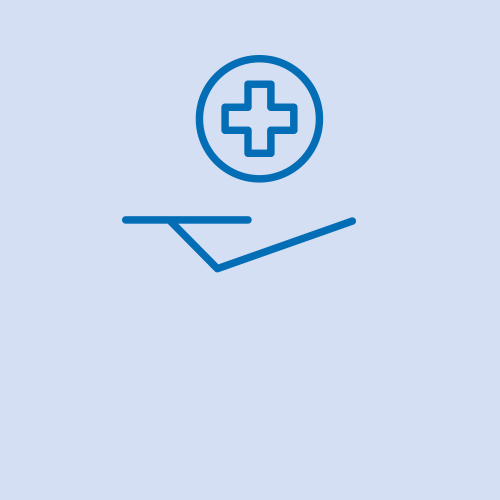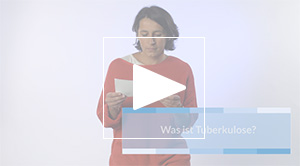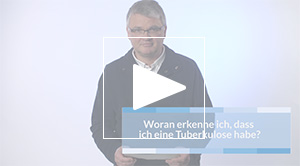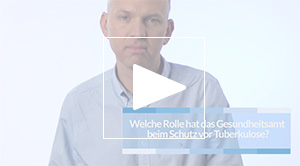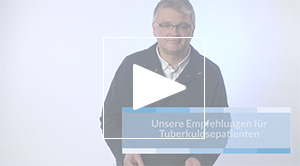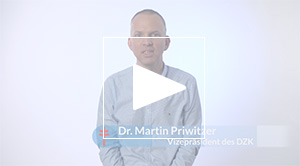Frequently asked questions about tuberculosis. (FAQs)
Public health institute
What role does the public health department play in the fight against tuberculosis?
If tuberculosis is detected, the public health department, as the local health authority, initiates targeted measures to contain the spread of the disease. For example, it supervises hygiene measures, supports and ensures adherence with tuberculosis therapy, and arranges precautionary examinations of people who have had contact with infectious tuberculosis.
In order for the public health department to take action, all doctors and laboratories must report the patients they have diagnosed with tuberculosis. The public health department will then contact the people affected. It gives advice about the disease and conducts research in the patients’ area. Anyone who has been in personal contact with someone suffering from tuberculosis is questioned to estimate the risk of infection and, if necessary, is examined as a precautionary measure. Thus, secondary infections and other diseases can be detected and treated promptly. The staff of the public health departments is available to answer all questions about tuberculosis.
last updated September 2020
Obligation to provide notification – who must report tuberculosis?
Tuberculosis is one of the diseases in Germany that must, by law, be reported. Every doctor and laboratory is obliged by the Infection Protection Act (IfSG §6 and §7) to report everyone diagnosed with tuberculosis by name to the responsible public health department.
last updated September 2020
What happens to my data once it has been forwarded?
In Germany, tuberculosis must, by law, be reported, which means that every doctor must forward the personal data and findings of tuberculosis patients to the responsible public health department. The public health department can then initiate targeted measures to contain the spread of tuberculosis. Your data will be used exclusively in this context.
The public health department forwards the data anonymously, i.e. without personal data such as your name or address, via the respective State Office to the Robert Koch Institute. There, the reported data from all over Germany is summarised and evaluated to determine how the tuberculosis situation in Germany is developing. Due to anonymous transmission, you cannot be identified. The medical staff involved in your treatment is bound by professional secrecy towards others.
last updated September 2020
How do I contact the public health department?
If you are diagnosed with tuberculosis, your data will be forwarded to the responsible public health department. The public health department will then contact you. Of course, you can contact your public health department on your own initiative at any time to address questions or concerns.
You can find out which public health department is responsible for you by entering your postal code in the RKI postal code tool. Generally, it is the public health department in the district or borough in which you mainly live or stay.
last updated September 2020
I have had contact with tuberculosis, what must I do now?
If you have been in contact with a person with tuberculosis, you will be identified as a contact by your public health department within the framework of a contact investigation, and then be contacted. The staff of your public health department will conduct a personal interview with you. First, they will ask you about your personal risk of infection and advise you on how to proceed. If a relevant risk should arise for you, you must be examined as a precautionary measure. Of course, you can also contact your public health department on your own initiative at any time.
Generally, there is a responsible public health department in the district or borough in which you mainly live or stay. Open the RKI postal code tool and enter your postal code to find out which public health department is responsible for you.
last updated September 2020
What is a contact investigation?
A contact investigation is the precautionary examination of all adults and children following contact with people suffering from tuberculosis. This involves checking whether someone in the vicinity has been infected with or a person has transmitted tuberculosis.
People suffering from tuberculosis must give their public health department the names of everyone they have had contact with over the past few months. These may be family members, housemates, work colleagues, or friends. The staff of your public health department will then assess, whether there is a risk of infection based on the duration and type of contact. If there is a considerable risk of infection, a precautionary examination is arranged. This could be a blood test, skin test or an X-ray of the lungs. Sometimes, several examinations are necessary. If a person is found to be infected, preventative treatment is recommended. This can prevent the development of disease in this person. If, due to the contact investigation, it is discovered that someone is suffering from tuberculosis, they can be treated at an early stage. Thus, the further spread of tuberculosis can be prevented.
last updated September 2020
What is a contact?
A contact is someone who has had direct contact with a person suffering from tuberculosis. The main question here is, whether you have been in the same room together for a long enough time. Contacts are generally family members and friends, but may also be work colleagues or schoolmates.
Contacts can also be strangers that the person suffering from tuberculosis has been in a closed room with for a longer period of time, perhaps at events or training courses. Generally, all contacts and locations of the last months are of interest. Your public health department will explain individually which contacts and locations require specification. Your public health department will then decide which contacts must actually be examined.
last updated September 2020
I have difficulty taking my pills regularly. Who can help me with that?
In order for tuberculosis therapy to be successful and for you to recover, it is very important to take the tablets every day in the correct dosage for at least 6 months. Some people have difficulties with this. This may be because they lack the motivation to take the tablets regularly and over such a long period of time, or simply because they repeatedly forget to do so. For some people, it is also difficult to understand or remember how many tablets of each medication are to take. If you notice that you need help taking the tablets, please contact either your public health department or doctor in confidence. They will help you find a solution together and safeguard your therapy. For example, your doctor may order a mobile care service to visit you every day and provide the tablets.
last updated September 2020
What is meant by quarantine?
People with infectious tuberculosis may not be in direct contact with other people without protective measures in order to prevent the disease from spreading. They are to be isolated from other people during the period that they could infect others.
In hospitals, people with infectious tuberculosis may only leave the hospital room by prior arrangement, e.g. for examinations, and must wear a suitable face mask. You must follow your doctors’ instructions. Medical staff may only enter patients’ rooms when wearing a special respirator mask.
Quarantine is necessary until no more bacteria is detected in the sputum and you are no longer infectious. Under certain conditions, you may also quarantine at home. You need to be able to tolerate your medication and take it regularly on your own. In addition, no one with a particular risk of infection, such as small children or people with limited immune defences, can live in your household. People with infectious tuberculosis are not allowed to be in public places such as restaurants, public transport, shops, and cinemas, and must also not attend parties or the like.
Together with your doctors, your public health department will decide whether and how therapy at home is possible with infectious tuberculosis, and will discuss the details with you.
last updated September 2020
What does directly observed therapy mean?
The correct medication must be taken regularly in order to recover and prevent the spread of tuberculosis. If there is a risk that your tuberculosis medication is not being taken regularly or correctly, your public health department will arrange for the treatment to be administered under supervision (= DOT, directly observed therapy).
This means that a member of your family, the public health department, or a nursing service will hand out the medication and watch the tablets are being taken.
last updated September 2020
What are my responsibilities as a patient?
If you have been diagnosed with tuberculosis or have had contact with a person suffering from tuberculosis, you are obliged by law to visit or notify your public health department when requested to do so. The appointment at your public health department is for the benefit of your own health, as well as to prevent tuberculosis from spreading and endangering others. Every tuberculosis patient must give their public health department the names of his or her recent contacts so that precautionary examinations can be initiated. The necessary laboratory tests or X-rays are usually carried out at your public health department or, by prior arrangement, by a registered doctor. The findings are then forwarded to your public health department. Your doctors instructions and preventative measures must be followed. Otherwise, breaches may result in coercive measures and fines. This is the only possible way to prevent the further spread of tuberculosis.
last updated September 2020
I have tuberculosis. Am I allowed to travel?
First and foremost, the therapy for your illness and preventing the infection of others is of the utmost importance. You will work together with your doctors and public health department to achieve this.
Only once you are not infectious, feel well, take your medication regularly and tolerate your medication, may you travel, however only after consulting your doctor. Your public health department must be informed before you travel anywhere.
You may plan to travel to another city in your country or abroad if your therapy can be carried out both while you are travelling and at your destination, without restrictions, and also if you continue to receive good medical care locally in case problems occur. Otherwise, your illness may worsen again or you may become infectious. If you have any questions, you can always contact your public health department or doctor.
last updated September 2020
Interviews with experts and patients.



